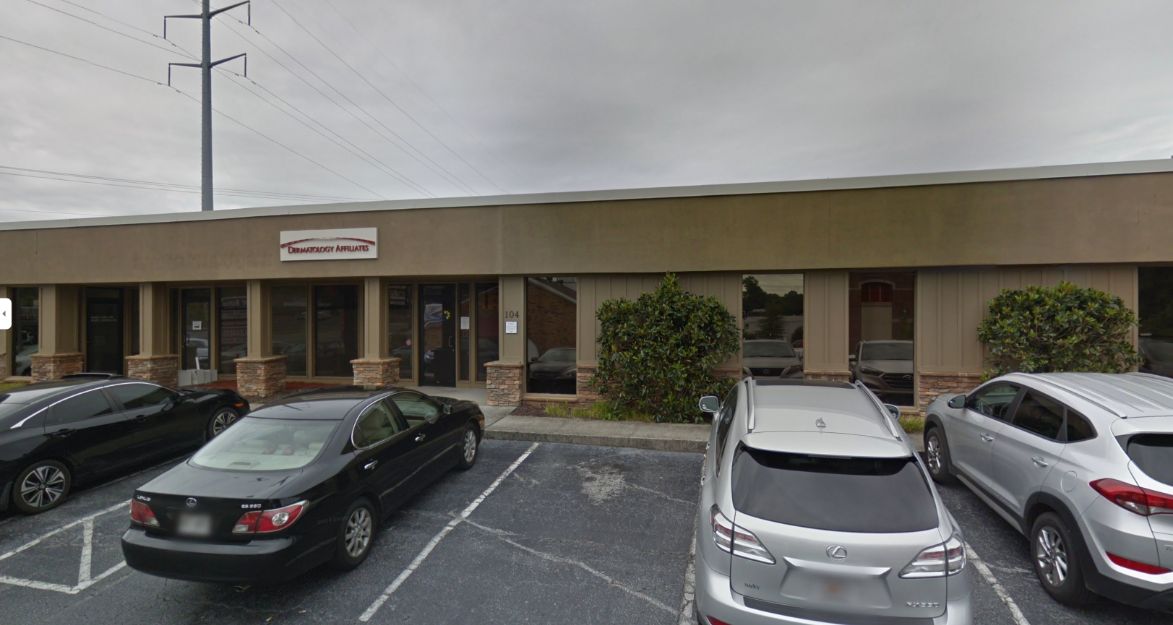Acne
Take Control of Your Acne with Dermatology Affiliates
Acne is a common skin condition that doesn't just affect adolescents—it can impact adults too. In fact, acne is the most prevalent skin condition worldwide, affecting over 650 million people.
Acne occurs when the skin's natural oils, combined with dead skin cells, clog hair follicles and pores. These blockages create the perfect environment for bacteria to thrive, leading to the development of pimples, whiteheads, and other symptoms associated with acne. Acne affects men and women of all races, making it a universal concern.
At Dermatology Affiliates, your skin's health is our top priority. Whether you're dealing with acne at 13, 23, or 53, our team is here to help. Schedule an appointment with one of our trusted providers to receive a personalized treatment plan tailored to your skin's unique needs. Let us guide you on your journey to clearer, healthier skin
Examples of Acne
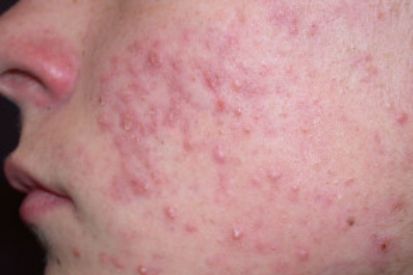
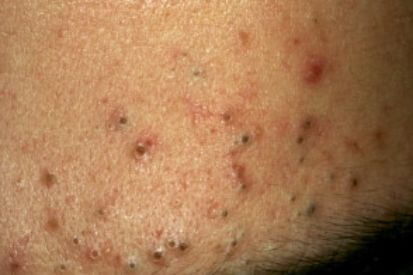
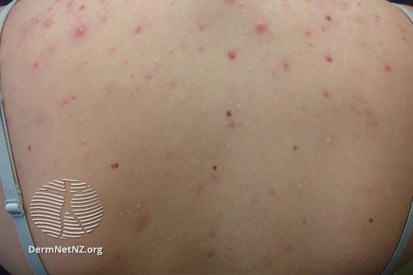
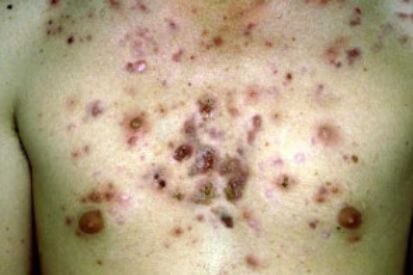
What are the Symptoms of Acne?
Before you can understand how to get rid of acne, it’s important to know the symptoms and how they may appear. Acne can range from mild blemishes to more severe, painful lesions, and it often affects not just the face but other areas of the body as well.
Common acne symptoms include:
- Pimples, blackheads, and whiteheads
- Red, inflamed bumps (papules)
- Pus-filled lesions (pustules)
- Large, firm nodules under the skin
- Painful cysts that may leave scars
- Breakouts on the face, neck, chest, back, shoulders, upper arms, or buttocks
What Causes Acne?
Acne develops when oil, dead skin cells, and bacteria build up in the pores, leading to inflammation and breakouts. Hormonal fluctuations are one of the most common triggers, especially during puberty, menstruation, and pregnancy, when hormone levels can increase oil production. Bacterial infection within clogged pores further aggravates the skin, creating redness, swelling, and sometimes painful lesions.
Other factors can exacerbate acne, including an unhealthy diet, certain medications, and stress. While stress doesn’t directly cause acne, it can trigger flare-ups and slow skin healing. Recognizing these influences is crucial for selecting the appropriate treatment and prevention plan.
- Hormonal Fluctuations: Hormonal changes, especially during puberty, menstruation, and pregnancy, can stimulate acne.
- Bacterial Infection: When hair follicles become clogged with excess oil and dead skin cells, bacteria multiply, triggering inflammation.
- Diet: Some studies suggest that certain foods may influence acne development.
- Medications: Certain medications can contribute to acne development.
- Stress: Stress doesn't directly cause acne, but it can exacerbate existing conditions.
How to Prevent Acne
Preventing acne starts with simple, consistent habits that support healthy skin. By following a daily routine and making mindful lifestyle choices, you can reduce breakouts and maintain clearer skin over time.
Key acne prevention strategies include:
- Cleansing your face twice daily with a gentle, non-comedogenic cleanser
- Moisturizing with an oil-free, non-comedogenic product
- Staying hydrated and maintaining a balanced diet
- Avoiding touching your face to reduce bacterial transfer
- Seeking personalized guidance from a dermatologist for persistent issues
Working with an expert at Pinnacle Dermatology can help you establish a foundation for lifelong skin health and create a routine tailored to your unique skin needs.
Acne FAQs
Over-the-counter acne products often include ingredients like benzoyl peroxide, salicylic acid, or alpha hydroxy acids, which are effective for treating mild acne. Prescription treatments, however, may offer stronger versions of these ingredients or incorporate additional medications such as topical or oral antibiotics, retinoids, or hormonal therapies. A dermatologist can determine the severity of your acne and recommend the best treatment approach.
The acne improvement timeframe can differ based on the severity of the condition, the treatment used, and individual factors. Over-the-counter products might show early results within a few weeks, whereas prescription medications like topical retinoids or oral antibiotics could take several weeks to a few months. Patience and consistency with the prescribed treatment are key. If there's little progress or if the acne worsens, your dermatologist may need to modify the treatment plan.
Acne is a widespread skin condition that can impact individuals of all ages, genders, and ethnicities. While it is most commonly linked to adolescence due to hormonal fluctuations during puberty, it can also persist or even emerge in adulthood. Factors such as genetics, stress, diet, and certain medications can further contribute to the development of acne at any stage of life.
Although acne can be frustrating, it is a highly treatable condition. Schedule an appointment with your dermatologist to identify an individualized treatment plan for your skin type and acne severity.
Dermatologists customize acne treatments based on skin type and acne severity. Common options include topical medications like retinoids and benzoyl peroxide, oral antibiotics, and sometimes oral contraceptives or isotretinoin. Light and laser therapies may also be suggested. Results vary, but many patients see significant reductions in acne lesions, better skin texture, and less scarring. Consistency with the treatment plan is crucial for optimal results.
Dermatologists provide a range of effective treatments for acne scarring, such as laser therapy, chemical peels, microneedling, and dermal fillers. Although complete scar removal may not always be possible, substantial improvement is frequently achievable. By working closely with patients, dermatologists create personalized treatment plans, set realistic expectations, and guide them toward achieving smoother, more even-toned skin. Early intervention and regular follow-up with a dermatologist are essential for optimizing results and effectively managing acne and its associated scarring.
From Our QualDerm Family of Brands: Acne Treatment Options
How to Treat Acne
Effective acne care isn’t one-size-fits-all. At Pinnacle Dermatology, our specialists create personalized plans that may include topical creams and gels, oral antibiotics, hormonal therapy, or retinoids for more severe cases. Each treatment is designed to reduce breakouts and target the underlying causes of acne.
Our dermatologists take the time to identify what’s driving your acne and build a treatment strategy that works for you. Whether you’re dealing with occasional flare-ups or chronic, severe acne, we’re here to help you achieve clearer, healthier skin. Schedule your appointment with Pinnacle Dermatology today and take the first step toward lasting results and renewed confidence.
Featured Blogs

- Skin Care
- Cosmetic Treatments
Having eczema or sensitivities to fragrance can take most of the fun out of buying soaps, lotions and other skincare products.
Read More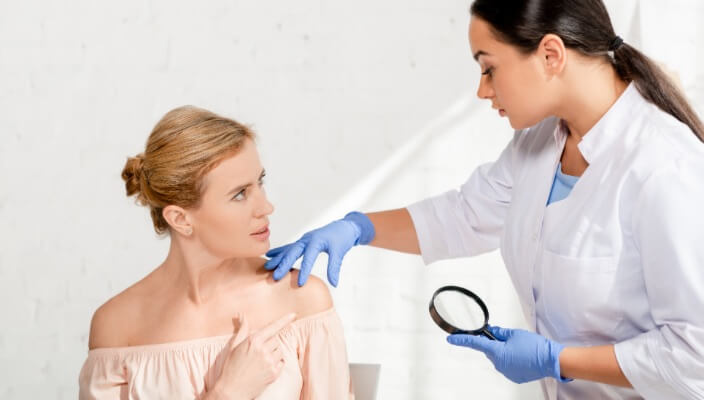
- General Dermatology
- Skin Care
- Chronic Skin Conditions
Skin tags are benign growths of excess skin which form in response to rubbing and irritation. Read more to learn about what we can do about them.
Read More
- General Dermatology
- Sun Safety
- Skin Care
Earlier in May, a pilot study was published that showed high concentrations of 4 chemical sunscreens in the blood. This study was done over 7 days with 24 people using different mixtures of chemical sunscreens in spray, lotion, or cream forms.This was a small study to see if there was reason to really study absorption through the skin.
Read MoreFeatured Products
Check your local office for current stock!
Check your local office for current stock!


